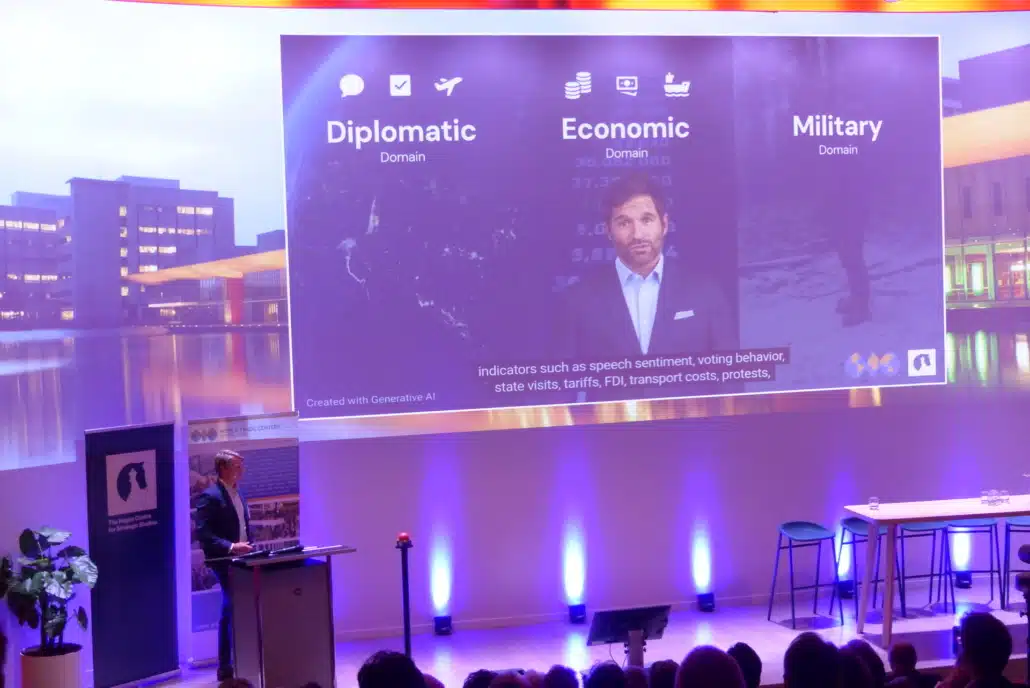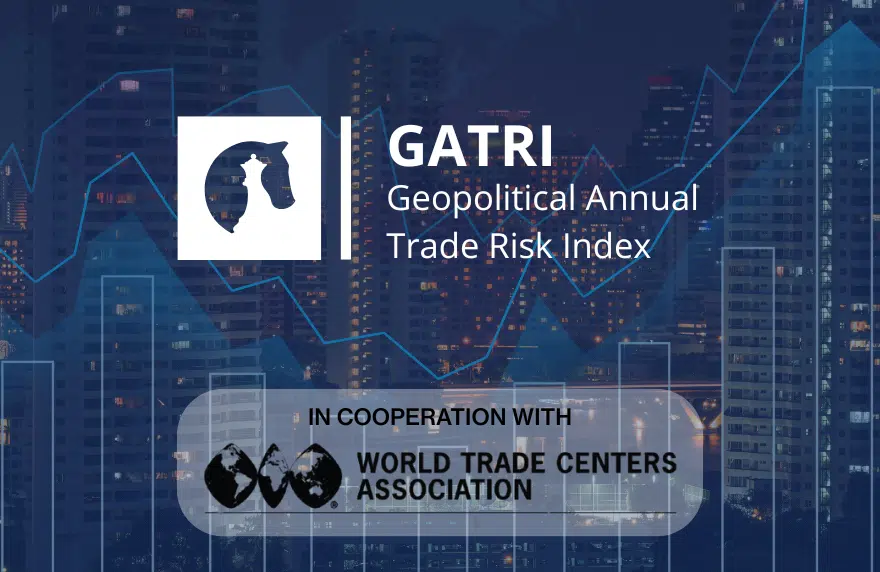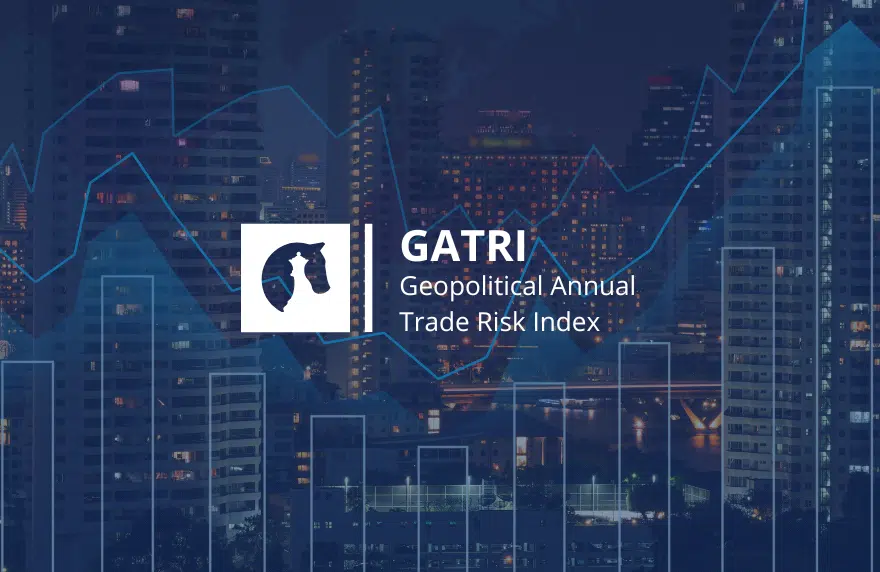Global trade is under pressure from rising geopolitical tensions. In response, the Hague Centre for Strategic Studies (HCSS), in collaboration with the Dutch World Trade Centers, has launched a new tool: the Geopolitical Annual Trade Risk Index (GATRI). This innovative index quantifies the impact of diplomatic, economic, and military developments on international trade.
In a world marked by instability, global trade faces new and urgent risks. From tariffs to cyberattacks to political upheaval, companies must prepare for uncertainty. That’s why HCSS and the Dutch World Trade Centers have launched GATRI — the Geopolitical Annual Trade Risk Index.
Developed as a comprehensive analytical tool, GATRI captures geopolitical developments across diplomatic, economic, and military domains, translating complex global events into clear indicators of trade risk. Despite its baseline at 100 for the year 2024, GATRI indicates a worrying downward trajectory, reflecting a consistent increase in global geopolitical risk over the past four years. Key drivers behind this negative trend include escalating military conflicts, deteriorating diplomatic relationships, and heightened economic volatility.
The military dimension of the GATRI, which consists out of 6 indicators, shows an alarming deterioration. The ongoing Russo-Ukrainian war exemplifies this, causing immediate disruptions to trade involving Ukraine and Russia and prompting extensive Western sanctions and strategic realignments, significantly reshaping global trade dynamics. Similar patterns of disruption are visible in Myanmar and Sudan, underscoring that military conflicts considerably amplify trade uncertainties and complexities.
When looking at the diplomatic dimension of GATRI, comprising several critical indicators including sentiment analysis from the UN General Assembly, also reflects rising instability. Last year’s heated exchanges at the UN exemplify how diplomatic tensions, like those between India and Pakistan over Kashmir, can quickly escalate into broader trade disruptions. The resulting decline in India-Turkey trade demonstrates how diplomatic disagreements directly impact trade relations, emphasizing the critical need for diplomatic stability in global commerce.

The economic dimension of GATRI, which integrates key economic indicators such as tariffs and transport costs, similarly underscores increasing volatility and risk. Rising trade tensions and abrupt fluctuations in transport expenses, such as those resulting from instability in key transit areas like the Red Sea, exemplify economic unpredictability. These economic disruptions significantly heighten uncertainties, disrupting supply chains and trade planning, further amplifying the comprehensive risk profile captured by GATRI.
Looking ahead, although the official score for 2025 has not yet been released, ongoing and emergent geopolitical events like the tariff war, Kashmir conflict and military conflicts in the world suggest that next year’s index will likely dip below the 2024 benchmark of 100. Given recent turbulent developments worldwide, the critical question is not if the score will decline, but rather how significantly it will drop.
Businesses can leverage GATRI for geopolitical due diligence using the predefined indicators, or using a subset they themselves find relevant on the customise page. Ultimately, GATRI represents an essential tool for navigating the increasingly volatile global trade landscape, empowering stakeholders with actionable insights to proactively manage geopolitical risks.
GATRI was officially launched on June 2, 2025, during World Trade Day in Eindhoven. Renowned international relations expert Prof. Rob de Wijk delivered a keynote on current geopolitical trends and officially unveiled the Index alongside Freerk Faber, board member of the World Trade Centers Association.
HCSS data scientist Maarten Vonk demonstrated the tool live to the audience in Eindhoven and viewers worldwide via livestream (rewatch the video above).
A high-level panel followed the launch, featuring industry leaders such as Gerben Edelijn (CEO Thales NL), Peter Berdowski (Chairman of the Supervisory Board, Boskalis), Maurice Geraets (Executive Director, NXP), and Dirk-Jan Brouwer (Deputy Director for Economic Policy, Dutch Ministry of Foreign Affairs). Together, they discussed how geopolitical volatility impacts international business strategies.
Maurice Geraets (NXP Semiconductors) explained it best during the launch:
“GATRI is not the final answer, but the trigger for analysis.”
GATRI is freely accessible at: https://gatri.app.hcss.nl











